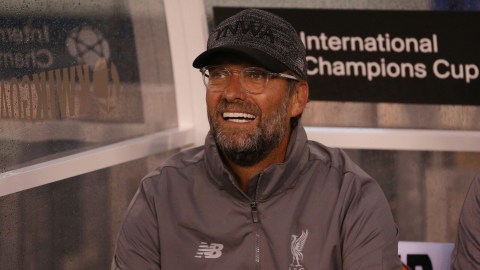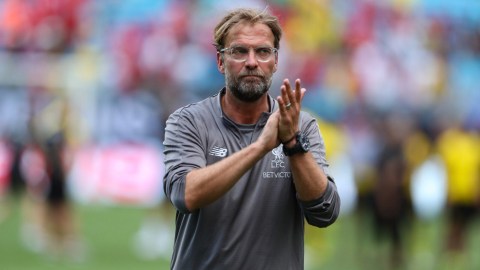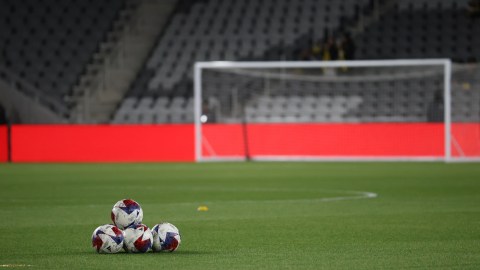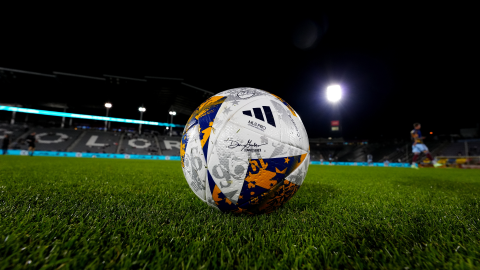“Love the sinner, hate the sin,” goes the old saying.
Luis Suarez was dead wrong to bait Patrice Evra. How he reacts to the stiffest of punishments and the next steps he takes will reveal a lot about the man. And players, clubs, supporters and administrators might want to use this moment as a teachable one.
Suarez allegedly referred to Evra’s skin color during a war of words that took place between the two on Oct. 15. There’s little doubt that Suarez was looking to provoke a furious response from the Manchester United defender with his repeated use of a word with racial overtones, and he succeeded in doing so.
That alone does not make Suarez a racist. But despite having a black grandfather and several friends of color, there was some feeling deep in his soul that a person’s dark skin is basis for a put-down. Just as something inside Evra saw the Uruguayan’s nationality as an acceptable target of verbal abuse. There’s nothing complex or nuanced about this issue. Both are clear examples of bigotry and should be condemned.
Trash talk, or gamesmanship, is part and parcel of any competition, and the Liverpool star’s words took Evra’s concentration away from the action on the field. But he crossed a line set by society (and backed by the FA and its member clubs) when he used Evra’s skin color as the target of his taunts. Had he ridiculed Evra’s eye color, hairstyle, weight or performance in the 2010 World Cup, there would be no case.
Evra’s personal sensitivity to the insults allegedly prompted him to report his opponent to the referee. And the FA was duty-bound to investigate and charge Suarez, when it learned that he had directed alleged race-based insults at Evra. He broke FA rules in doing so, and that’s why he was punished. Suarez may want to report Evra for his insults, but it might be too late.
El Pistolero’s reaction to the punishment was stoic and concise. He spoke of personal pain and thanked his supporters, which is expected of someone facing difficult days ahead. By remaining calm, he’s allowing the process to play itself out, without wild speculation and inaccuracies that do little to help us better understand the world we inhabit.
The response from his club and many supporters fails to match the player’s tranquility. Their mix of astonishment, talk of conspiracy and reinforcement of an “us against them” mentality could boost team spirit and improve results in the near term. Closing ranks around Suarez also shields him from slings and arrows he faces. Publicly embracing Suarez in his time of need also is consistent with the club’s mantra. No one should expect Liverpool to turn its back on one of its own. It won’t allow Suarez to walk alone.
But he cannot hide from the fact that he did a disservice to the club and his own reputation with his shameful actions. Suarez maintains the controversy was a misunderstanding between Evra and him. And those that agree might empathize with the embattled star and be shocked that they could face the same scrutiny for their own words or actions. It should cause us all to examine our own deeply held beliefs and feelings toward people from different backgrounds. And let’s be honest about what we find.
Let’s also applaud the FA for taking a hard stance on this clear-cut issue. The authorities certainly made an example of the high-profile Suarez. If the FA thinks his offense deserves such a harsh punishment, it must use this case as a precedent and consistently apply its lessons to all future offenders. It would lose much credibility if it fails to do so.
But that’s not enough. The FA must also take steps to address the effects of systematic racism in the English game. The cultural makeup of those who take the field at the youth level should reflect the local population. The FA should create incentives that would lead clubs to pursue this outcome.
English soccer’s governing body also must take steps to ensure that the managerial ranks reflect the socio-cultural makeup of the players that take the field. The on-field diversity should extend off it as well. Individual clubs should seek greater diversity among top management on the sporting and business sides.
That stretches to the highest levels of the game. The FA needs to take steps to recruit, develop and retain men and women from various cultures and nationalities if it wants to remain a leader in the world’s game. And there is no reason that these people should not have the real opportunity to reach the top — director level and board membership — of the organization once they gain entry. Anything less would be hypocritical and detrimental to the long-term health of the game both in England and around the world.
Have a question for Marcus Kwesi O’Mard? Send it to him via Twitter at @NESNsoccer, NESN Soccer’s Facebook page or send it here. He will pick a few questions to answer every week for his mailbag.



